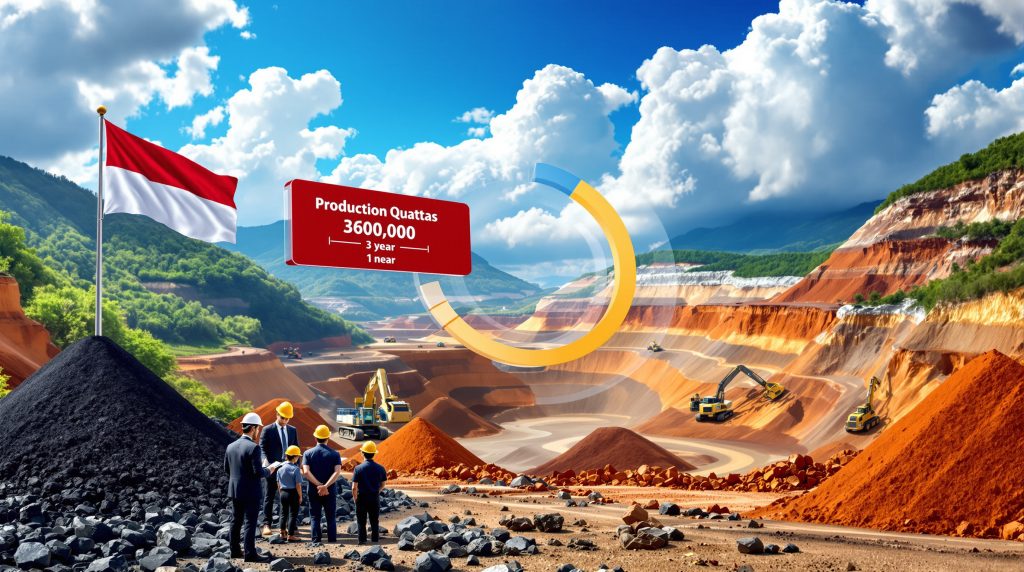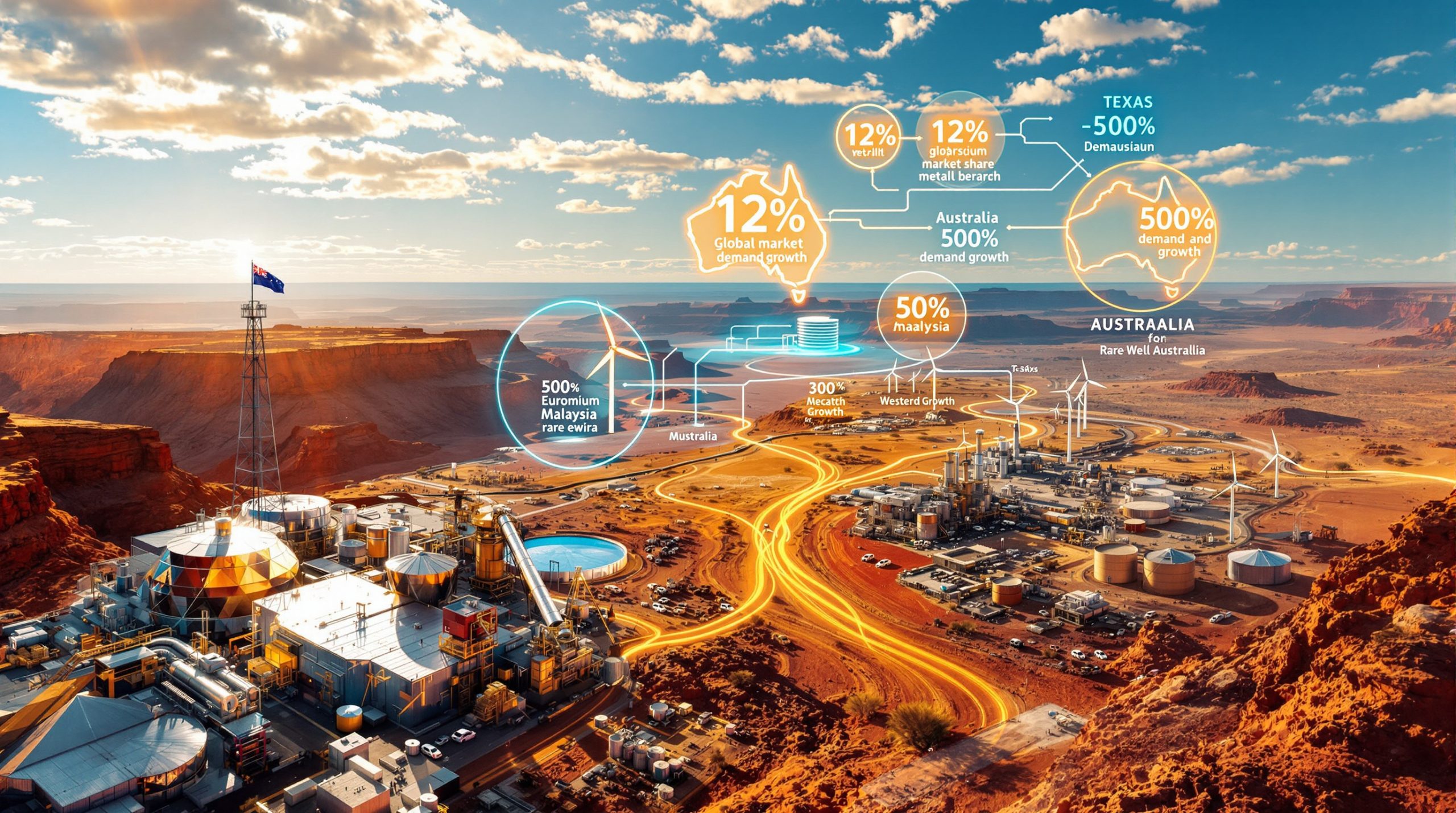Indonesia's Mining Quota Reform: Understanding the Shift to Annual Approvals
Indonesia has implemented a significant regulatory change by reducing mining production quota validity from three years to one year, effective October 3, 2025. This policy shift gives authorities greater control over commodity output levels, particularly for key resources like coal and nickel. The reform represents a strategic move in Indonesia's ongoing efforts to maximize value from its natural resources while addressing economic and environmental priorities.
Key Policy Changes and Implementation Timeline
- Annual application requirement replaces previous three-year quota system
- Quotas already approved for 2025 remain valid under grandfathering provision
- Mining companies must resubmit applications for previously approved 2026-2027 quotas
- RKAB proposal submission window established: October 1 to November 15 annually
- Enhanced land rehabilitation funding verification now required for quota approval
Why Has Indonesia Shortened Its Mining Quota Validity Period?
Strategic Market Management Objectives
The shortened quota validity period gives Indonesian authorities more frequent control points to:
- Adjust production levels in response to fluctuating commodity prices
- Implement more responsive supply management strategies
- Support price stability for key export commodities
- Exercise greater influence in international resource markets
- Align production with evolving national economic priorities
Environmental Governance Enhancement
The reform strengthens Indonesia's environmental oversight framework by:
- Creating more frequent compliance checkpoints for mining operations
- Requiring documented proof of land rehabilitation funding commitments
- Establishing stronger accountability mechanisms for environmental impacts
- Supporting enforcement actions against non-compliant operators
- Aligning with the recent suspension of 190 mining permits for environmental violations
What Challenges Does the New System Create for Mining Operators?
Industry Concerns and Operational Implications
The Indonesian Coal Mining Association (APBI) has highlighted several potential challenges:
- Compressed timeline for securing 2026 quota approvals
- Increased administrative burden from annual application processes
- Reduced business certainty for long-term operational planning
- Potential complications for contract fulfillment commitments
- Investment uncertainty due to shorter regulatory horizons
Business Continuity Considerations
Mining companies must now navigate:
- More frequent regulatory approval processes
- Potential operational disruptions during transition periods
- Adjusted planning cycles to accommodate annual quota renewals
- Enhanced documentation requirements for environmental compliance
- Evolving relationships with government regulatory authorities
How Might the Reform Impact Indonesia's Position in Global Commodity Markets?
Nickel Sector Implications
For Indonesia's strategically important nickel industry:
- Enhanced ability to manage production levels to support price stability
- More responsive adjustment to evolving battery market demands
- Strengthened position as the world's largest nickel producer
- Support for Indonesia's downstream processing ambitions
- Potential for more strategic alignment with EV battery manufacturing goals
Coal Production Management
For Indonesia's substantial coal sector:
- Greater flexibility to align production with climate policy objectives
- Enhanced capacity to balance domestic energy needs with export opportunities
- More tools to respond to international price fluctuations
- Improved ability to manage production during energy transition periods
- Strategic control over a key foreign exchange earner
What Additional Requirements Must Mining Companies Now Meet?
Enhanced Compliance Framework
Under the revised system, mining operators must:
- Submit comprehensive RKAB proposals within the designated annual window
- Provide verifiable proof of land rehabilitation funding allocations
- Demonstrate adherence to previous quota limitations
- Meet strengthened environmental management obligations
- Align production plans with government strategic priorities
Regulatory Enforcement Mechanisms
The government has demonstrated its commitment to enforcement through:
- Recent suspension of non-compliant mining permits
- Withholding of quota approvals for violations
- Implementation of financial penalties
- Enhanced monitoring and inspection regimes
- Stricter accountability for environmental impacts
How Does This Reform Fit Within Indonesia's Broader Resource Strategy?
Resource Nationalism Context
The quota validity change aligns with Indonesia's established resource nationalism approach:
- Restrictions on raw ore exports to promote domestic processing
- Mandates for partial divestment of foreign mining operations
- Strategic use of export taxes and quotas
- Policies promoting downstream industrial development
- Leveraging resource abundance for economic development
Balancing Economic and Environmental Priorities
The policy reflects Indonesia's evolving attempt to balance:
- Economic returns from natural resource extraction
- Environmental protection and mine reclamation innovation
- Domestic industrialization objectives
- Climate commitments and decarbonization targets
- International investor relationships and confidence
What Adaptation Strategies Should Mining Companies Consider?
Operational Adjustments
Companies operating in Indonesia's mining sector may need to:
- Develop more flexible operational planning systems
- Strengthen government relations capabilities
- Enhance environmental performance documentation
- Build more agile supply chain management approaches
- Invest in sustainability initiatives to secure regulatory approval
Long-term Strategic Considerations
Forward-looking mining operators should evaluate:
- Portfolio diversification to manage regulatory risk
- Enhanced stakeholder engagement approaches
- Technological investments to improve modern mine planning
- Vertical integration opportunities in Indonesia
- Partnerships with domestic processing entities
In addition, mining companies should stay informed about industry evolution trends and consider industry consolidation strategies to remain competitive in this changing regulatory landscape.
FAQs: Indonesia's Mining Quota Reform
How will the annual quota system affect Indonesia's nickel production targets?
While 2025 nickel mining quotas remain approved at 298.5 million wet tonnes, future production levels will be subject to annual review, potentially allowing more responsive management of output to support price levels and domestic processing objectives.
What happens to mining quotas previously approved for 2026-2027?
Previously approved quotas for 2026 and 2027 are no longer valid. Mining companies must reapply through the RKAB proposal process during the October-November 2025 application window, creating a compressed timeline for securing 2026 production approvals.
How might the quota change affect mining investment decisions in Indonesia?
The shortened quota validity introduces additional regulatory uncertainty that could impact investment decisions, particularly for projects with longer development timelines. Companies may need to adjust financial models to account for more frequent regulatory intervention points.
What environmental requirements are linked to the new quota approval process?
Mining companies must now provide proof of funds set aside for post-mining land rehabilitation before securing RKAB approvals, strengthening the connection between production rights and environmental responsibilities. Furthermore, understanding the mining permitting guide is essential for navigating these new requirements effectively.
Further Exploration:
Readers interested in learning more about Indonesia's mining regulatory framework can also explore related educational content, such as Indonesia's tightening mining controls and developments in the resource sector policies.
Ready to Stay Ahead of ASX Mining Discoveries?
Gain instant alerts on significant mineral discoveries with Discovery Alert's proprietary Discovery IQ model, transforming complex market information into actionable investment opportunities. Visit Discovery Alert's discoveries page to see how major mineral finds have historically delivered exceptional returns for early investors.




